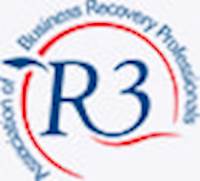Until the end of March 2022, any business owing £10,000 or more could receive a winding-up petition from a creditor and be wound up in court, regardless of whether COVID-19 affected its ability to pay. (This does not apply to landlords with unpaid commercial rent though, where restrictions still apply).
Defend a Winding-Up Petition
In order to present a winding-up petition, a creditor must first issue a Schedule 10 notice to the debtor, requesting payment proposals. From the date of the notice, the debtor then has 21 days to submit a payment proposal that is “satisfactory to the creditor” after which, winding-up action can commence.
Defend a Winding-up Petition
This 21-day period has been provided so that businesses can work through their difficulties with creditors. A company wishing to defend a winding-up petition and continue to trade could:
- pay the debt in full
- propose a payment plan as part of company voluntary arrangement
- propose a pre-insolvency moratorium
The new pre-insolvency moratorium introduced during the COVID-19 pandemic, provides a breathing space from all creditor legal action for a period of 20 business days and can be extended without creditor consent whilst debt restructuring options are investigated.
In defending a winding-up petition, proposals for repayment should explain fully the rationale behind them and explain the cash situation, trading and cashflow predictions, creditor pressures, proposed remedial action and the implications of winding-up. An insolvency practitioner such as ourselves will help with a payment proposal and such an in-depth review of the situation, will be beyond the internal expertise and resources of a typical debtor company.
Insolvency advice should be taken as soon as possible, to allow time to consider all available recovery options. The longer a Schedule 10 notice remains unaddressed, the narrower the business recovery options may become, until only a liquidation procedure remains on the table.
Obtaining advice early will also help directors to comply with their statutory duties and responsibilities, minimising the risk to directors of personal liability arising from claims of misfeasance and wrongful or fraudulent trading.
A new consideration for directors is the Finance Act 2020, also introduced during the COVID-19 pandemic. It is possible for directors to be at personal risk for unpaid company tax liabilities, due to non-payment by a company and repeated insolvency. Again, seeking professional advice will help directors mitigate the risk of personal financial exposure.
Should it be appropriate for a company to no longer trade, a creditors’ voluntary liquidation is usually a preferable alternative to a winding-up petition, avoiding the negativity associated with a subsequent compulsory liquidation.
If you are concerned that you might receive a statutory demand or a winding-up petition, or have already, Greenfield Recovery is ready to help with you taking remedial action. We offer free, confidential and licensed insolvency advice. Call us on 0121 201 1720, send an enquiry below or book a consultation at a suitable time.



